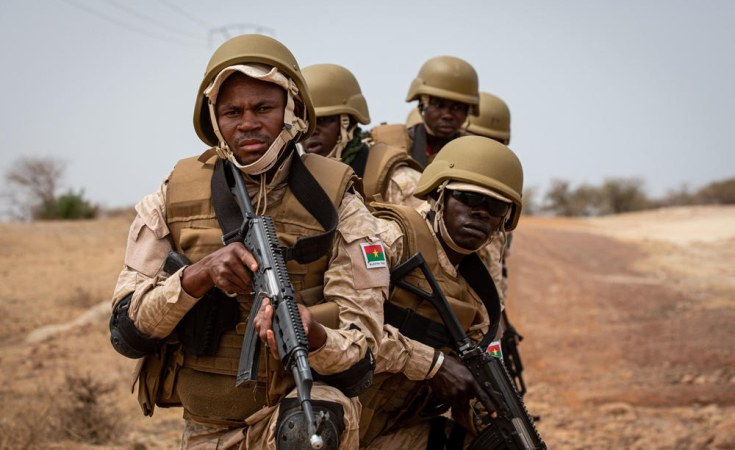President Tinubu said terrorism cannot co-exist with democracy and development.
President Bola Tinubu has described terrorism as an imported evil concept that is alien to African society and must be banished.
Mr Tinubu said this on Monday at the African High-Level Summit on Counterterrorism in Abuja.
The two-day summit is a meeting of African member states, the African Union, and other regional and sub-regional organisations, international partners, including P5 members of the United Nations Security Council, and civil society organisations.
In his opening remarks, Mr Tinubu called for a united front against terrorists, adding that African countries must understand that "terrorism is not of Africa" but imported to cause fear and destruction.
He stated that terror cannot coexist with democracy and development.
"This violent threat seeks to frighten the farmer from his field, children from their schools, women from the marketplace and families from their very homes. It wants the city dweller to cower and businesses to close. It craves despotism and suppression, not democracy and enlightened society," he said.
Speaking on the solution to terrorism, Mr Tinubu said the fight requires a comprehensive approach, involving both kinetic and non-kinetic means. He stated that issues of marginalisation and justice are important.
"And how do we banish it? Terrorism's harm is felt far and wide for the very reason that it has no respect for national boundaries, ethnic bloodlines or religious creeds. We must, therefore, fight this threat together, combining determined national efforts with well-tailored regional and international collaboration.
"While we seek to address the root causes of terrorism, we must also attack the roots that feed this evil branch. Evolving from the tactics of yesterday, terrorism is becoming a greater threat as it perfects ways to continuously finance, re-equip and re-supply itself for its sinister mission," he said.
World leaders like the Deputy Secretary General of the United Nations, Amina Mohammed; Under-Secretary-General of the United Nations Office of Counter-Terrorism, Vladimir Voronkov; Special Representative of the United Nations Secretary-General for West Africa and the Sahel (UNOWAS), Leonardo Simão; the High Representative for the United Nations Alliance of Civilisations, Miguel Moratinos; and other high-level United Nations officials are expected to participate in the summit.
Nigeria has, in recent years, been battling terrorism in the northern parts of the country for over a decade.
Al-Qaeda-affiliated Ansaru terrorists and the Islamic State West African Province (ISWAP) are some of the most prominent groups operating in the Sahel region.
Apart from the Boko Haram insurgency in the North-east, terrorists, locally called bandits, operate in many states in the North-west and North-central.
In the past, the Multinational Joint Task Force (MJTF) set up by Nigeria, Niger, Chad, Benin and Cameroon, played a major role in combating cross-border terrorism.
However, the recent coups in some African countries and the breakdown in diplomatic relations have made it difficult to maintain joint efforts against terrorism.


